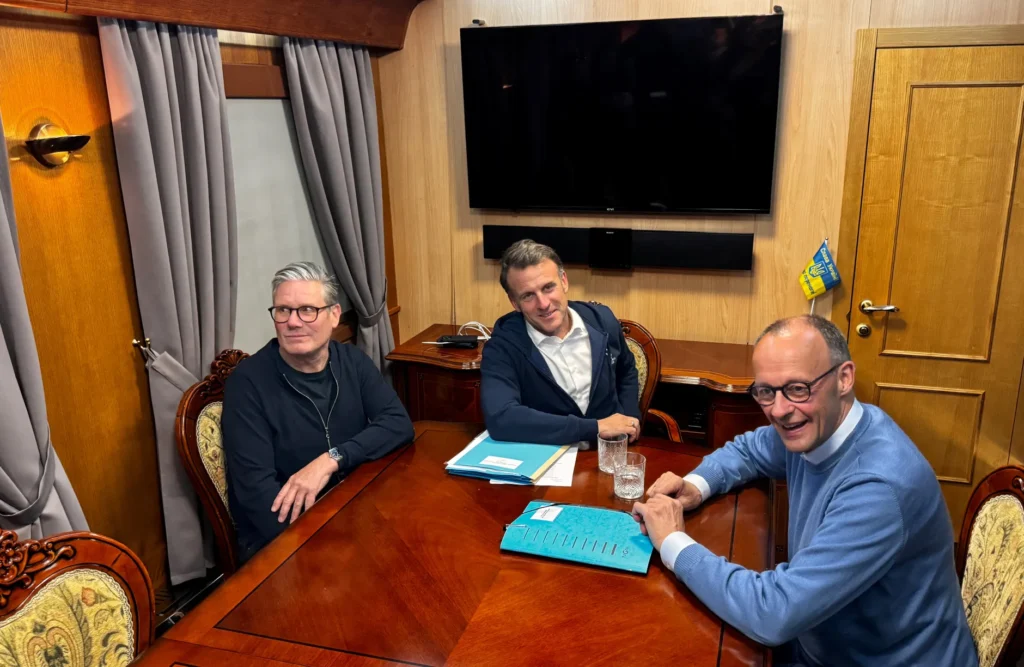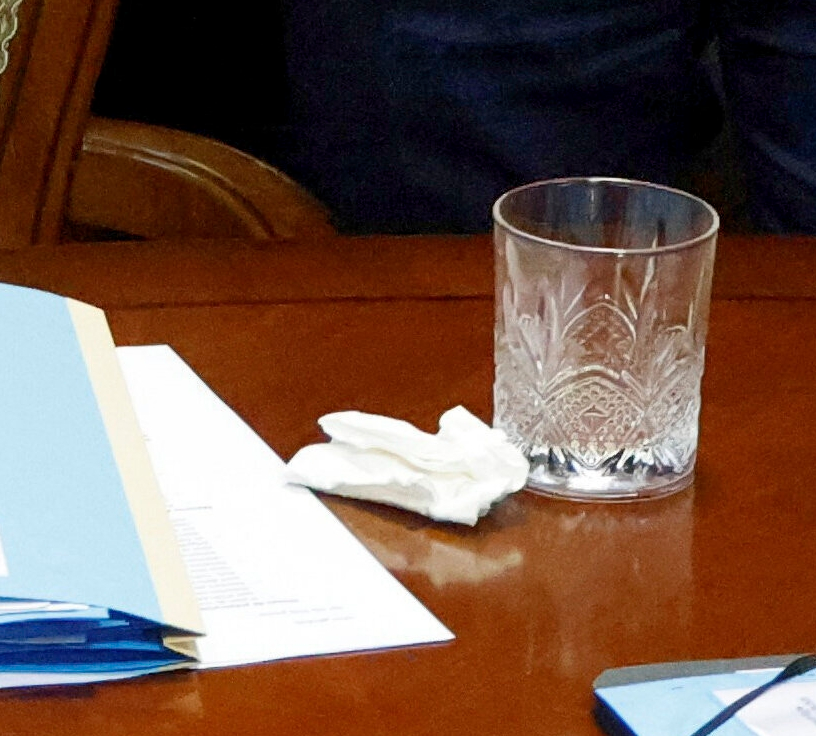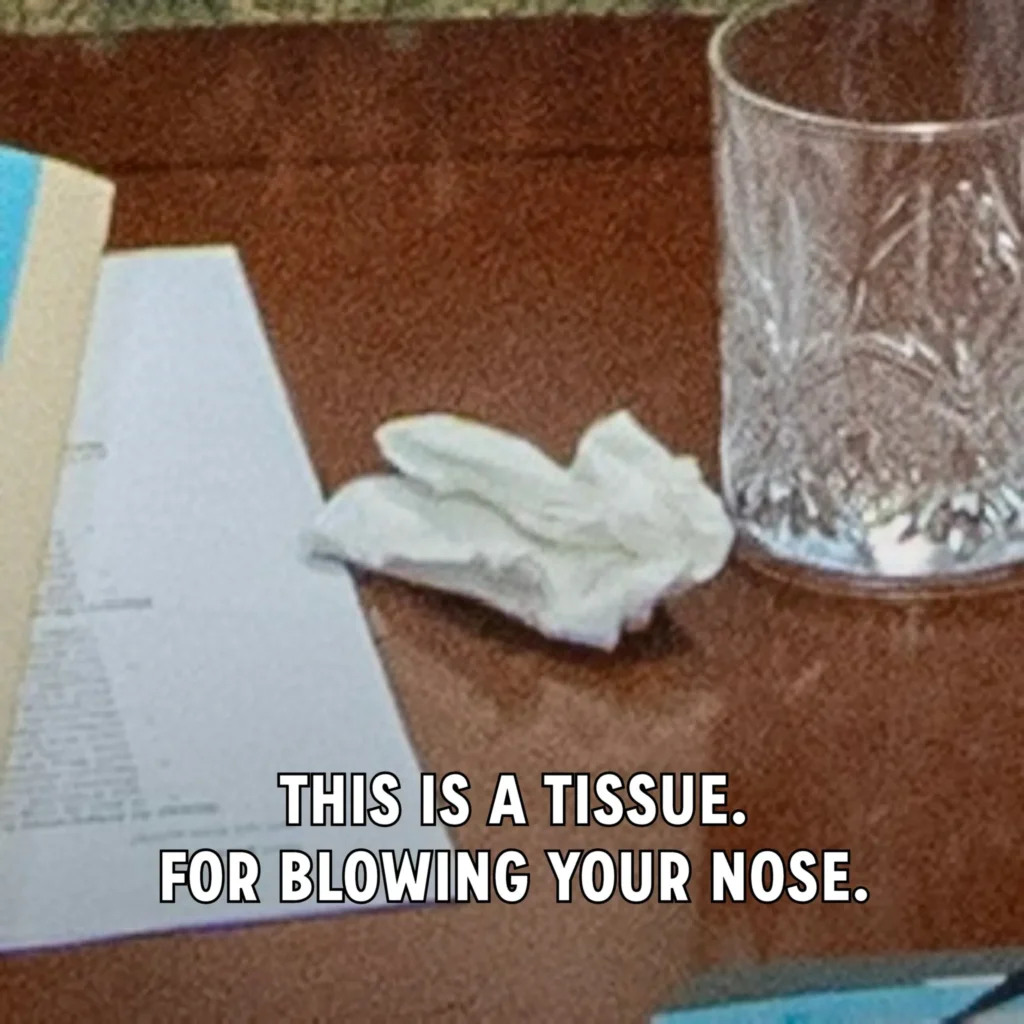PARIS — The French government has forcefully rejected a Kremlin-fueled conspiracy theory falsely claiming President Emmanuel Macron was concealing a bag of cocaine during his high-profile visit to Kyiv alongside British Labour leader Keir Starmer and German opposition leader Friedrich Merz.

The rumor, spread by pro-Russian social media accounts and amplified by Russian Foreign Ministry spokesperson Maria Zakharova, falsely alleged that Macron discreetly pocketed a “bag of white powder” while aboard a night train to Kyiv. The Élysée Palace swiftly responded, labeling the video-based claims as fabricated disinformation and confirming the object in question was merely a tissue.
“When European unity becomes inconvenient, disinformation goes so far as to make a simple tissue look like drugs,” the presidential office wrote on X, formerly Twitter. “This fake news is being spread by France’s enemies, both abroad and at home. We must remain vigilant against manipulation.”
The grainy footage that ignited the online storm shows Macron picking up a tissue from a train table while seated beside Starmer and Merz. The video quickly circulated with false commentary from pro-Kremlin users, some of whom suggested the French president was hiding drug paraphernalia. One viral post falsely stated: “Macron, Starmer and Merz caught on video on their return from Kiev. A bag of white powder on the table. Macron quickly pockets it, Merz hides the spoon.”

Zakharova seized on the narrative, invoking an old propaganda tactic used by the Kremlin against Ukrainian President Volodymyr Zelensky and other Western leaders. “A Frenchman, an Englishman, and a German spotted with cocaine paraphernalia on a train,” she wrote on Telegram. “The fate of Europe is being decided by utterly (drug) dependent individuals.”
The French government dismissed the comments as part of an escalating digital smear campaign led by Russia’s military intelligence services, designed to sow distrust in democratic institutions and fracture European solidarity. “It infiltrates French digital networks with two aims: collecting intelligence for the benefit of the Kremlin and destabilising our society by creating distrust,” said France’s Foreign Ministry.
In response to the false claims, Macron’s official account shared a photo of him shaking hands with Starmer and Merz, captioned: “This is European unity” — underscoring the leaders’ joint mission in Ukraine to call for a 30-day ceasefire from Russia and express unwavering support for Kyiv.

While in Kyiv, the trio joined a conference call with President Donald Trump, reinforcing their unified stance. “So all of us here together with the US are calling Putin out,” Starmer said following the meeting. “If he is serious about peace, then he has a chance to show it.”
Kremlin spokesman Dmitry Peskov downplayed the message from Kyiv, accusing Europe of sending “contradictory statements” and insisting they were “confrontational in nature.”
The baseless allegations against Macron are part of a long-running strategy by Moscow to delegitimize European leaders with claims of drug use — a tactic it has previously used against Zelensky. Experts warn such efforts are designed to weaken public confidence in Western institutions and distract from Russia’s ongoing war in Ukraine.


